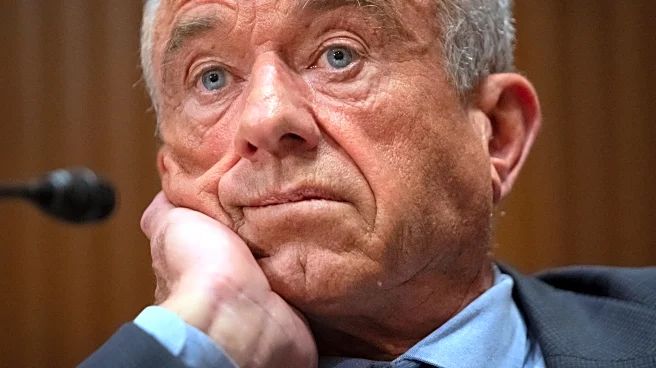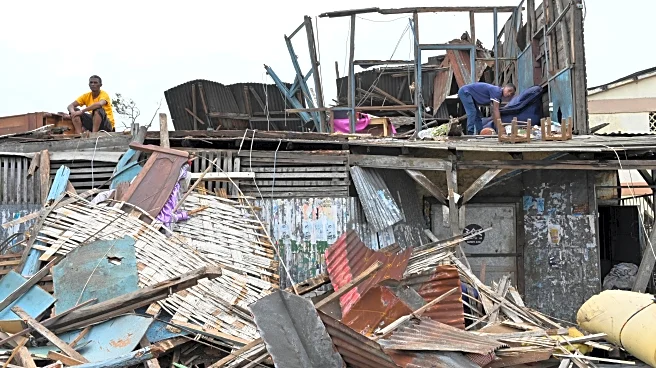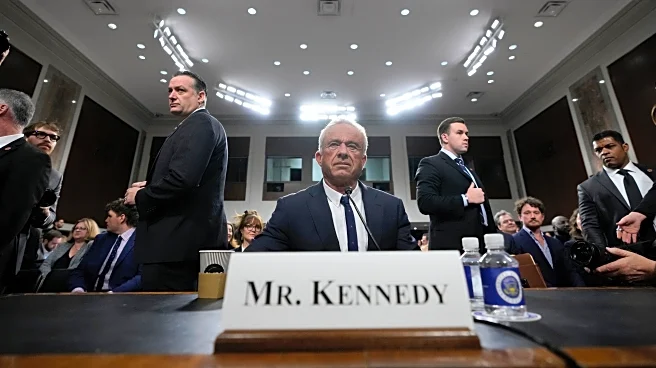What's Happening?
Peru's Congress has declared Mexican President Claudia Sheinbaum a persona non grata, escalating a diplomatic dispute over Mexico's asylum offer to Betssy Chavez, a former Peruvian prime minister. This decision follows Peru's severance of diplomatic ties
with Mexico, accusing it of an 'unfriendly act' for granting asylum to Chavez, who faces conspiracy charges related to former President Pedro Castillo's attempt to dissolve Congress. Peru's Foreign Minister Hugo de Zela is reviewing the legal basis for Mexico's asylum offer under the 1954 Caracas Convention. Despite the diplomatic rift, both countries aim to minimize the impact on their economic partnership, as they are members of the Pacific Alliance trade bloc.
Why It's Important?
The diplomatic tensions between Peru and Mexico highlight the complexities of international asylum policies and their impact on bilateral relations. The situation underscores the challenges countries face in balancing domestic legal proceedings with international diplomatic norms. The strained relations could affect trade and tourism between the two nations, which are significant economic partners within the Pacific Alliance. The dispute also reflects broader regional dynamics, as Mexico's asylum policies have previously led to tensions with other Latin American countries, potentially influencing diplomatic strategies and alliances in the region.
What's Next?
Peru's legal experts are expected to conclude their review of the asylum offer by the end of the week, which could lead to further diplomatic actions. The outcome may influence Peru's approach to international asylum cases and its relations with other countries offering asylum to political figures. Additionally, the situation may prompt discussions within the Pacific Alliance on how to handle diplomatic disputes while maintaining economic cooperation. Observers will be watching for any shifts in Peru's foreign policy or changes in its diplomatic stance towards Mexico.
Beyond the Headlines
The asylum dispute raises questions about the ethical and legal dimensions of international asylum practices, particularly in politically charged cases. It highlights the potential for asylum policies to become tools of political leverage, affecting international relations and domestic politics. The situation may also prompt broader discussions on the role of international conventions in resolving diplomatic conflicts and protecting human rights. As countries navigate these complex issues, the case could influence future asylum policies and diplomatic strategies in Latin America.

















